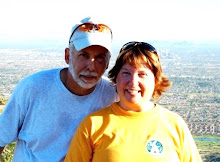Whatever happened to individual responsibility for your
actions and choices in life? Why do we continue to judge someone according to
their skin color? Didn’t Dr. King specifically challenge us to judge someone
not according to their skin color but by their conduct and character? A
Professor from Vanderbilt made the following statement in the Tennessean, White people act “routinely
to harm, demean, and damage black and brown people.” These actions “explain the
lofty levels of frustration and despair among black and brown youth.” Professor
Tony Brown, who is Black, blames the unrest and ongoing rioting on ‘White
Privilege’.
I’m not going to debate whether ‘White Privilege’ really is
the cause of ongoing Black poverty or is more an academic attempt to shift
responsibility away from an individual and to racism. I would rather talk about
social economic privilege that transcends culture and race. It’s because
someone is born into a family that has two parents, who both have a moral
foundation, choose to be learners, doers, givers and empower their children to
become self-sustaining adults that have a clear advantage over those who grow
up in brokenness.
It’s time to stop using racism or what I call reverse racism,
Professor Brown’s talk, as the cause of all the ills around us. If I choose to
steal or shoot someone I alone am responsible for my actions whether I’m a
White, Black, Brown, Yellow or Red. I was born into a family where both of my
parents are from St. Louis, MO where they experienced racism firsthand as kids
growing up in working class poor families. My dad, who is my hero, raised me as
someone who always looked at a person’s conduct and character as the true basis
for my friendship and not their color. My father who was a byproduct of a
broken home choose without parental support to finish high school, go to
college on a scholarship and join the Air Force. He never once made excuses
about his step dad’s hatred and resentment of him as a reason to not pursue
excellence.
I agree that the path to overcoming racism has everything to
do with changing your perception of different people groups by intentionally
making friends of different socio-economic and racial groups. I agree with
Professor Brown that all of us live typically in homogeneous neighborhoods,
send our kids to schools that reflect our background and choose church based
more upon our background then anything else.
The journey to racial reconciliation is for everyone to increase their
circle of friends, be more adventurous about where we shop, eat and worship.
What would happen if this Professor chooses to live in the marginalized
neighborhood in Nashville and give a portion of his salary as a tenured
professor to help empower the disadvantaged youth that potentially could get a
scholarship to Vanderbilt instead of becoming a statistic?
I have spent the last decade of my life intentionally living
in a marginalized neighborhood where I’m the minority. I have experienced first
hand the ‘plight’ of disadvantaged youth who grow up with no dads or dads in
prison, moms who are substance abusers and very little reason to try when they
know no one really cares.
My passion is to not make excuses for behavior but give kids
and teens an opportunity to make better life choices by not blaming anyone but
themselves for their present life choices. Is there any simple path to resolve
the causes for the rioting, looting or police actions in Baltimore or anywhere?
Clearly there is a history on all sides that have created the present culture
of fear and racism. Change can happens with one person at a time choosing to
think before they say something that would incite more racial tensions. Instead
let’s become people, who are open to pursue racial reconciliation by judging
less, understand how my choices might hurt someone without me knowing it and to
open our eyes to see that racism still exists.
Yes, I’m privileged to have had a mom and dad who loved me
unconditionally and raised me to show respect to all people regardless of age,
socio-economics, race or religion.


No comments:
Post a Comment